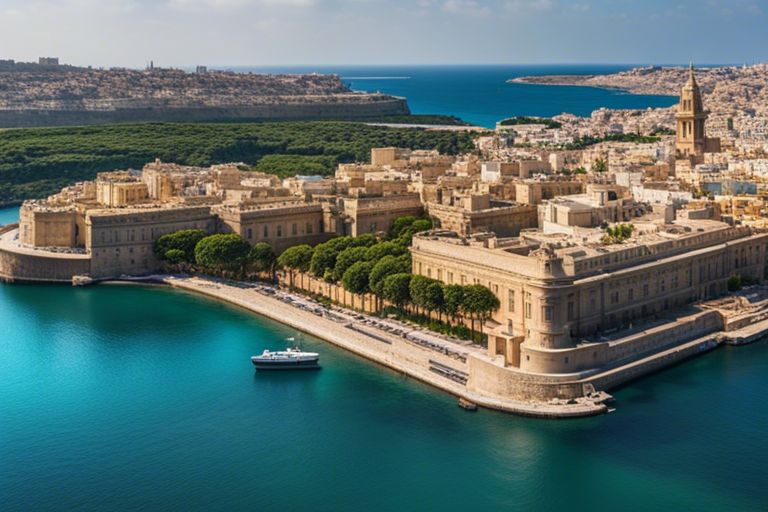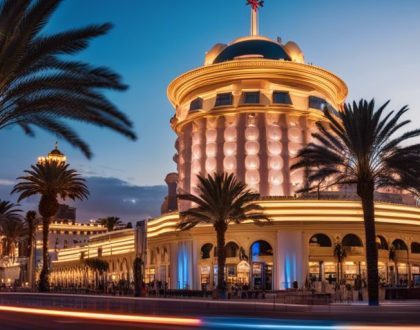Malta's Green Laws – What You Missed

You may think you are up to date on environmental legislation in Malta, but there are some crucial aspects you might have overlooked. From recent updates on waste management to regulations on renewable energy sources, ignorance of these vital green laws can have serious consequences. Stay informed and protect our environment by taking a closer look at what you might have missed.
Historical Evolution of Malta's Green Laws
Early Environmental Policies
For decades, Malta has been striving to protect its natural environment through various policies and initiatives. In the early years, the focus was primarily on tackling immediate environmental issues such as waste management, air pollution, and water quality. These early environmental policies laid the foundation for the comprehensive green laws that we see in place today.
Key Milestones and Legislative Changes
On the path toward developing more robust environmental laws, key milestones and legislative changes have played a crucial role in shaping Malta’s approach to environmental protection. Early on, the enactment of laws focused on ensuring conservation of natural habitats, protection of endangered species, and management of waste generated on the islands. These efforts paved the way for more comprehensive legislation addressing climate change, renewable energy, and sustainable development.
Changes in legislation over the years have strengthened Malta’s stance on environmental conservation and sustainability. The introduction of penalties for environmental violations, the establishment of protected areas, and the promotion of renewable energy sources have all been significant steps toward ensuring a greener future for the Maltese Islands.
Current Green Laws and Regulations
Waste Management and Recycling Initiatives
One of the primary focus areas of Malta’s green laws is waste management and recycling initiatives. Laws in Malta require proper sorting and disposal of waste to minimize environmental impact. The government has implemented various programs to encourage recycling, such as providing incentives for households and businesses to recycle. Stricter regulations have been put in place to ensure that waste is managed in an environmentally responsible manner.
Conservation of Natural Habitats and Biodiversity
Laws in Malta emphasize the conservation of natural habitats and biodiversity to protect the diverse ecosystems present in the country. The government has designated several protected areas and biodiversity hotspots to safeguard them from degradation and destruction. Strict monitoring and enforcement ensure that activities within these areas comply with regulations to prevent harm to the environment.
Habitats within these protected areas provide important habitats for a wide range of plant and animal species, some of which are endangered or endemic to Malta. Conservation efforts focus on preserving the unique biodiversity present in these habitats to maintain ecological balance and ensure the sustainability of the local ecosystems.
Enforcement and Compliance Strategies
Monitoring and Reporting Mechanisms
Compliance with Malta’s green laws is closely monitored through a series of robust monitoring and reporting mechanisms. Environmental agencies conduct regular inspections and audits to ensure that businesses and individuals are adhering to the regulations. Furthermore, these entities require detailed reporting on environmental performance metrics to track progress towards sustainability goals.
Penalties and Incentives for Compliance
Strategies for ensuring compliance with Malta’s green laws include a combination of penalties and incentives. Penalties are imposed on entities that fail to comply with regulations, ranging from fines to possible closure of operations. On the other hand, incentives such as tax breaks and grants are offered to organizations that demonstrate exemplary environmental performance. This approach aims to create a balance between enforcement and encouragement for sustainable practices.
To ensure full compliance with Malta’s green laws, it is crucial for businesses and individuals to understand the consequences of non-compliance and the benefits of adhering to regulations. By implementing effective monitoring mechanisms, imposing strict penalties, and offering attractive incentives, Malta is actively working towards a greener and more sustainable future.
Challenges and Opportunities
Criticisms of Current Green Laws
Not all is perfect with Malta’s current green laws. Critics argue that while the existing legislation is a step in the right direction, it lacks proper enforcement mechanisms and penalties for non-compliance. Additionally, some feel that the laws do not adequately address emerging environmental issues such as climate change and biodiversity loss.
Future Prospects for Environmental Legislation in Malta
On the horizon, there are opportunities for significant improvements in Malta’s environmental legislation. With a growing awareness of environmental issues among the public, there is a push for more ambitious and comprehensive laws to protect the island’s natural resources and ensure sustainable development.
With the upcoming revisions to the environmental laws in Malta, there is a chance to address the criticisms and strengthen the existing framework. Implementing stricter regulations, enhancing monitoring and enforcement mechanisms, and increasing penalties for violations can contribute to a more effective and robust legal framework for environmental protection.
Green laws play a crucial role in safeguarding Malta’s unique ecosystems and mitigating the impacts of human activities on the environment. By addressing the criticisms and seizing the opportunities for improvement, Malta can pave the way for a greener and more sustainable future.
Final Words
To wrap up, the environmental laws in Malta are robust and forward-thinking, aiming to protect and preserve the island’s natural beauty and resources for future generations. From strict regulations on hunting and fishing to incentives for renewable energy projects, Malta has taken significant steps towards a more sustainable future. By staying informed about these green laws and actively supporting their implementation, we can all play a part in safeguarding the environment and ensuring a greener tomorrow for Malta.
Recommended Posts

Finance Tips for Malta’s Residents
May 9, 2024

Deciphering Complexity of Casino Regulations
May 8, 2024

